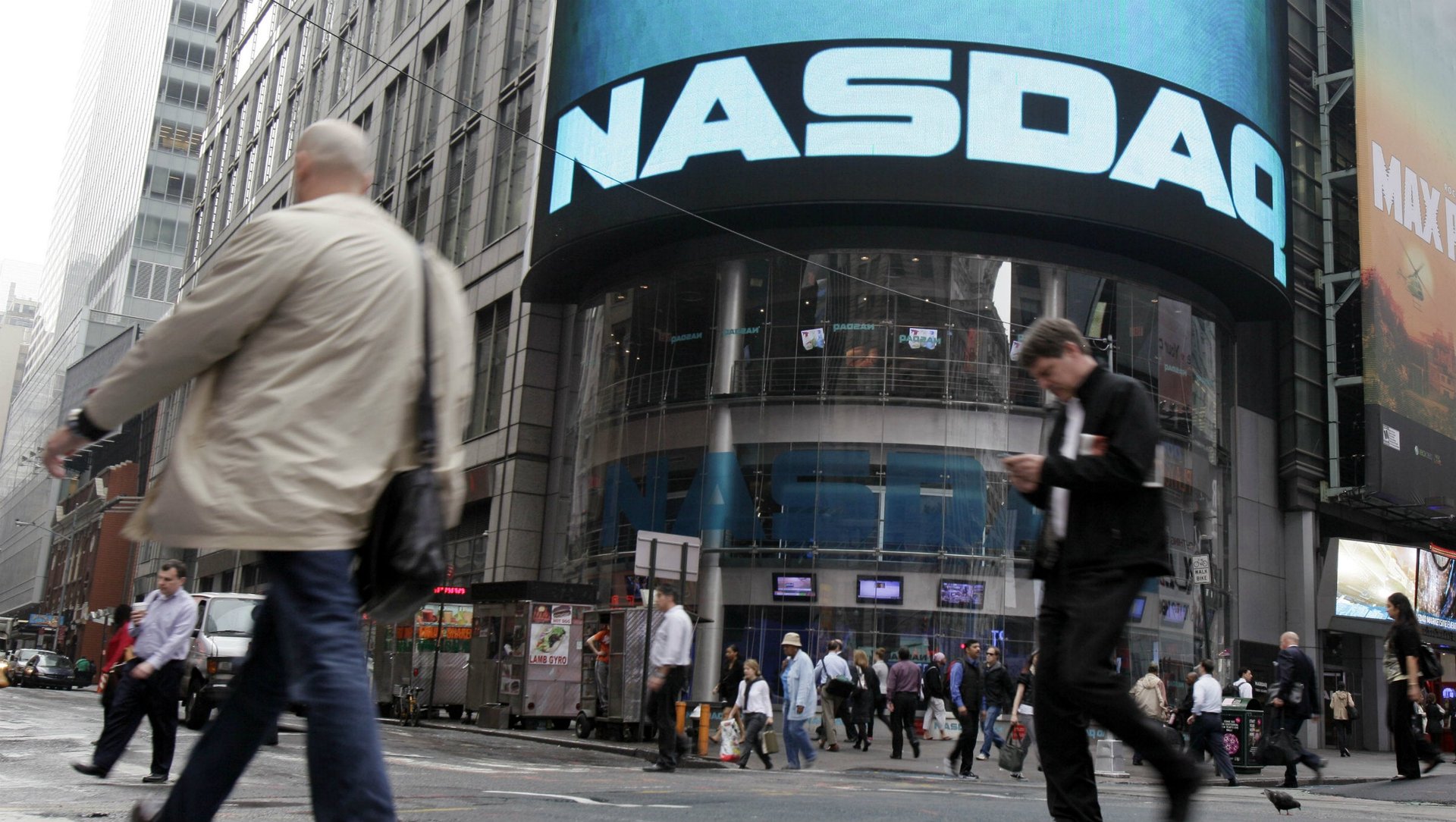Bankers pushing Chinese tech IPOs should prepare to be disappointed
Weibo, China’s Twitter-like social media service, will be valued at around $3.5 billion when it starts trading on the Nasdaq today, less than half the most optimistic analysts’ estimates. It sold just 16.8 million shares at $17 each, the low end of its range (in terms of both price and volume). This was despite help from major shareholder Alibaba, which reportedly not only bought more shares than expected, but helped win over investors in the pricing call.


Weibo, China’s Twitter-like social media service, will be valued at around $3.5 billion when it starts trading on the Nasdaq today, less than half the most optimistic analysts’ estimates. It sold just 16.8 million shares at $17 each, the low end of its range (in terms of both price and volume). This was despite help from major shareholder Alibaba, which reportedly not only bought more shares than expected, but helped win over investors in the pricing call.
Given the waning appetite for tech stocks in general, the moribund demand for Weibo’s stock was not too surprising. But it may also reflect a serious miscalculation by investment banks and company executives of the real demand for Chinese tech listings in the US.
A steady drip of bad news about China’s economy, as well as the government’s crackdown on social media users and online innovations like Alibaba’s banking service and Bitcoin, probably contributed to Weibo’s weak pricing. (The company’s own miserable results of late didn’t help either.) But Weibo’s pricing also came after an already historically large glut of Chinese tech companies came to market:

Close on Weibo’s heels are another $3.1 billion in IPOs in New York for Chinese internet and tech companies, according to Dealogic. They include JD.com, which some hoped markets could value at as much as $13 billion, online cosmetics retailer Jumei International, which has registered with the SEC to sell $400 million in its IPO, and Cheetah Mobile.
That’s not counting the much-anticipated monster of them all, e-commerce site Alibaba, which is expected to raise as much as $18 billion in a New York IPO later this year, valuing the company at more than $150 billion.
Judging from comments made by investors who considered buying Weibo shares, there won’t be enough support for them all.
To even get the pricing it did, Weibo had to invoke Alibaba, the Financial Times reported: “The strength of Weibo’s ties to Alibaba proved crucial in winning over investors, whose uncertainty about the deal dragged out the final pricing call to three hours.” And Alibaba, which was slated to own 32% of Weibo after the IPO, bought more shares than planned, the FT reports.
On the other hand, those ties may have deterred some investors who decided to buy one or the other, but not both, the Wall Street Journal reported: “Weibo’s IPO carried less appeal because they were also interested in buying Alibaba shares, which they said would give them enough exposure to Weibo.”
The difference between Twitter’s post-IPO performance and Weibo’s pricing has confounded some Weibo supporters. Twitter’s market cap is now more than $26 billion, and the company has yet to turn a net profit. “Either Weibo is incredibly undervalued,” Sam Hamadeh, the chief executive of PrivCo Media, told the South China Morning Post, “or Twitter is ridiculously overvalued.”
The truth may be somewhere in the middle, but that’s not likely to help the coming line-up of IPOs.